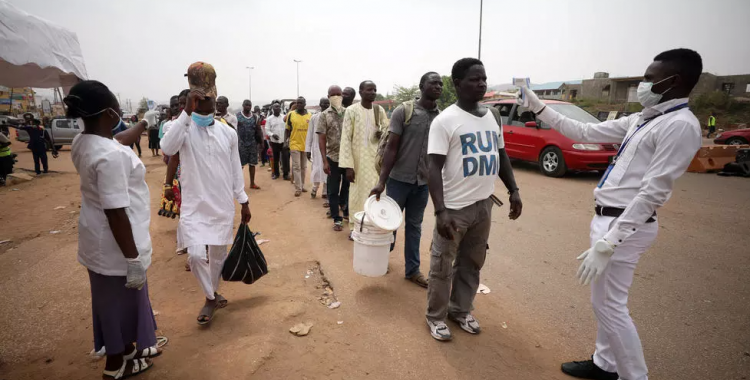These actions are part of a set of policies and recommendations presented in a study on the socio-economic impact of the pandemic in Angola, prepared by the United Nations Development Program (UNDP) and the United Nations Agency for Housing (UN Habitat).
The study points out that Angola faces a prolonged economic recession, volatility in oil prices, growing fiscal and external vulnerability, growing poverty and unemployment and limited access to basic social services.
It therefore suggests "immediate actions" in terms of response and recovery from the pandemic, including initiatives to alleviate the negative impacts on the most vulnerable groups, such as the unemployed and informal workers - especially women - and people living in highly concentrated areas. or without access to basic services.
In this context, it recommends, for "informal settlements and musseques", the distribution of soap and hygiene and food products at water collection points, creation of mechanisms to promote solidarity based on community leaders, residents' associations and community associations of water and the creation and maintenance of emergency toilets.
Transfers of monetary values and distribution of basic food baskets, vaccination campaigns, coordination of waste collection groups and provision of personal protective equipment, cessation of forced evictions and accommodation alternatives for women, children and young people in need of assistance should also be promoted. leaving their homes due to domestic violence.
In order to guarantee the continuity of economic activity, including micro, small and medium-sized enterprises, informal markets and small farmers, measures compatible with safety standards must be adopted to keep the food supply chain functional.
Since three out of four people have an informal job "policy measures need to clearly support the livelihood of these informal workers", says the study, recommending investment in restructuring and equipping informal markets, with rules on the limit number of people, distance and use of masks and disinfectants.
The study also recommends the revision of the National Development Plan 2018-2022 to prioritize programs to improve the health sector and combat poverty.
In the context of labor market interventions, he proposes that public works programs "could be used to offer temporary work and generate labor intensive employment" through infrastructure projects and social services.
To this end, a component of the Integrated Plan for Intervention in Municipalities (PIIM), which counts on 1.8 billion euros, could be reoriented in the sense of "promoting labor intensive activities in key priorities in communities", such as roads irrigation works.
For people living on the street, the study suggests hiring hotel rooms or boarding houses or temporarily converting military barracks and closed public buildings, food distribution posts and other support and ensuring that providers of these services will have access to up-to-date information about health conditions, alcohol gel and masks.
The document also stresses that government initiatives and measures must "ensure a gender-based approach" and human rights, preventing arbitrary detentions, police brutality and domestic violence.
Angola has so far identified 24 cases of infection with the new coronavirus, which causes covid-19, of which there are two deaths.







